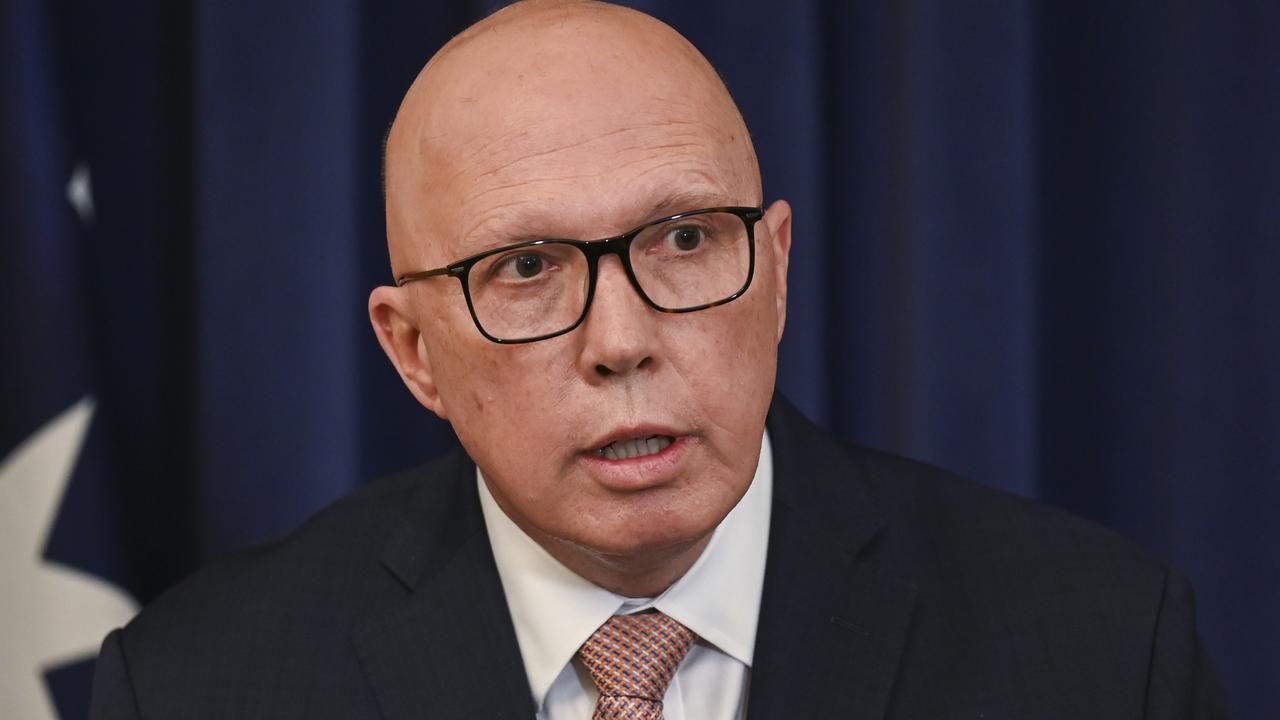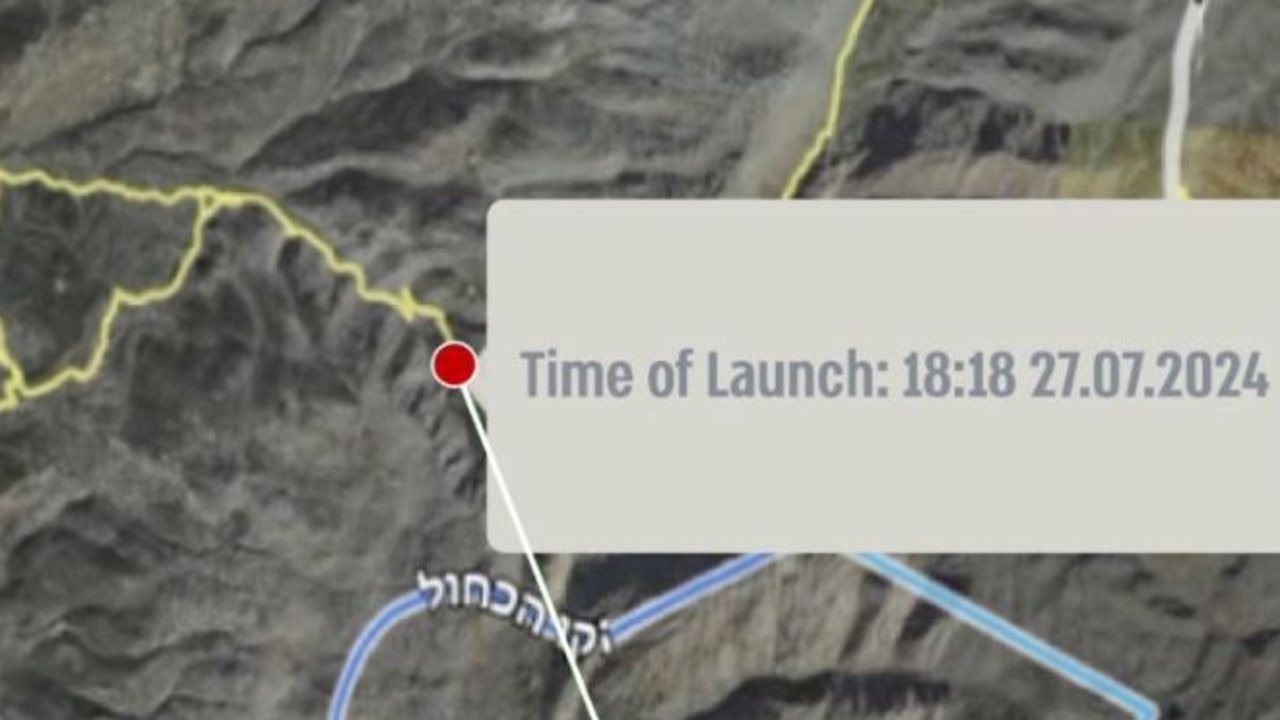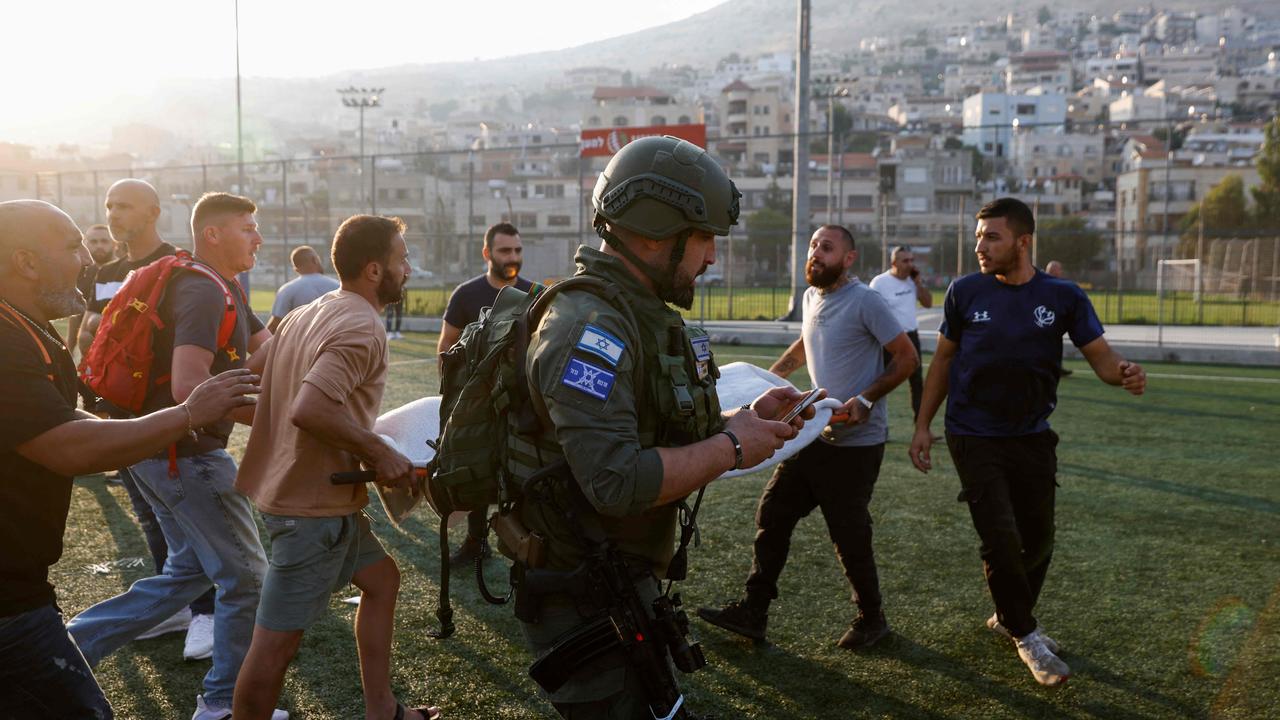Israeli hostage reveals only reason Hamas captor didn’t rape her
A 21-year-old French tattoo artist who was abducted by Hamas and held in captivity for 54 days said she was kept in a “dark room” and watched 24/7.
The 21-year-old French tattoo artist abducted and wounded by Hamas terrorists said she’s convinced there’s only one reason she wasn’t raped by her captor during 54 hellish days in captivity.
“His wife was outside the room with the children,” freed hostage Mia Schem said during a newly released interview on Israeli TV.
“That was the only reason he didn’t rape me.”
Ms Schem, who has dual Israeli and French citizenship, said her tormentor kept her in a dark room under constant watch for most of her time in Gaza, the New York Post reports.

She said she was starved and taunted by the terrorist’s family while wondering if she’d be killed at any moment.
“[I was] closed in a dark room, not allowed to talk, not allowed to be seen, to be heard, hidden,” Ms Schem told Israel’s Channel 13. “There is a terrorist looking at you 24/7, looking, raping you with his eyes.
“There is fear of being raped, there is fear of dying,” Ms Schem said, at times bursting into tears while recounting the ordeal. “His wife hated the fact that he and I were in the same room. You feel like you want a hug, you know, woman to woman, to break down a bit.
“That’s all you had there. But she was so mean, she had such mean eyes.”

Ms Schem was among more than 200 Israelis taken hostage during the Oct. 7 sneak attack by Hamas terrorists, who killed more than 1,200 people in the assault.
She was attending the Nova music festival near the border with the Gaza Strip when violent invaders went after the young Israeli festival-goers.
The 21-year-old was shot in the arm during the invasion.
Ms Schem said she tried to flee, but that terrorists fired on her car and set it on fire, leaving her only two choices at the time.
“It was a split-second decision, whether to stay put and burn to death or go with him,” she said.
She was yanked onto a pick-up truck and taken into Gaza, where she had a makeshift splint placed on her wounded arm.
She was then taken to a Palestinian home and held captive.


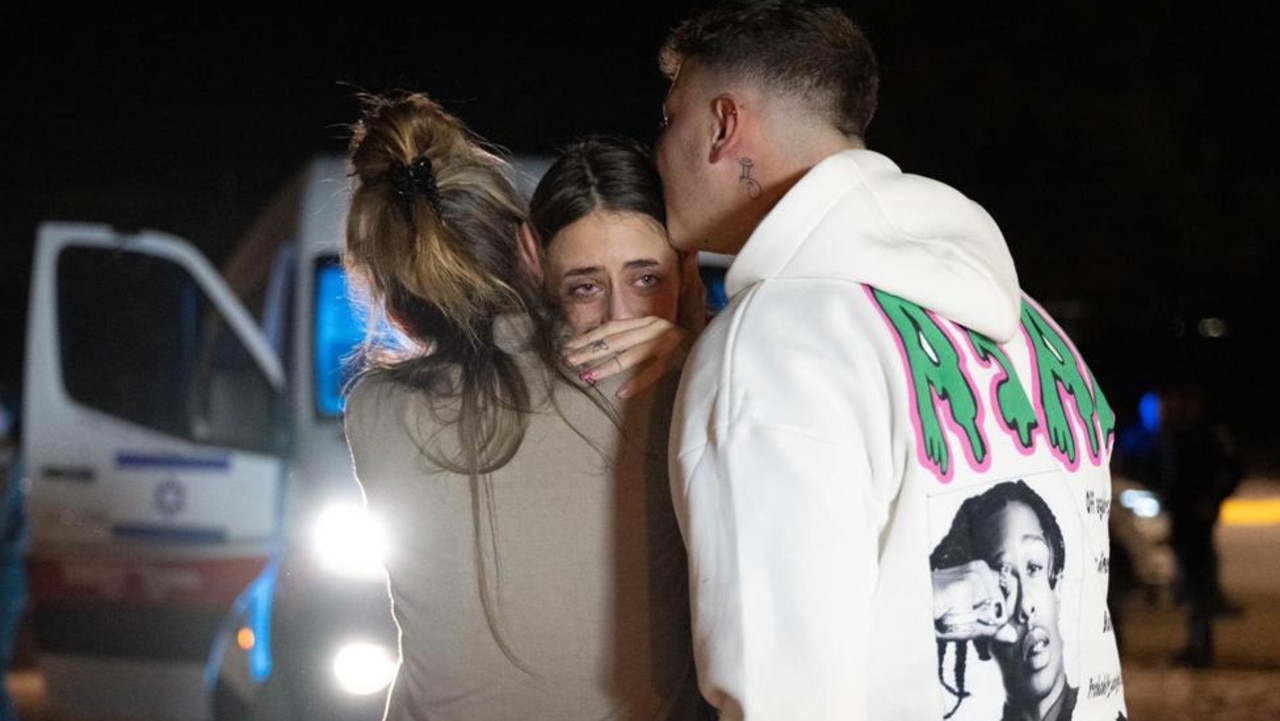
At times Israeli bombs from a counteroffensive by the Jewish state rattled the home, and even shattered the windows at one point, she said in the television interview.
“I thought, ‘If I didn’t die on the 7th [of October], I’m going to die now,’” Ms Schem said, but added that, “I trusted the military.”
In November, she was one of the hostages released during a brief ceasefire — but said she still bears the scars of her nightmare and disdain for those who took her freedom.
“It was important to me to relay the truth about the nature of the people who live in Gaza, who they truly are and what I experienced there,” she said in the interview.
“It is important to you that the world understands, what? That I went through a holocaust,” Schem added. “Everyone over there is a terrorist.”
Hamas leader killed
Israel’s war against Palestinian militants reached Lebanon on Tuesday, where an Israeli strike killed Hamas’s deputy leader, the group and security officials in Lebanon said.
A high-level security official told AFP that Saleh al-Aruri was killed along with his bodyguards in the strike by Israel, which vowed to destroy Hamas after the movement’s unprecedented October 7 attacks on Israel.
Israel has previously announced the killing in Gaza of Hamas commanders and officials during the war, but Aruri is the most high-profile figure to be killed, and his death came in the first strike on the Lebanese capital since hostilities began.
Israeli army spokesman Daniel Hagari did not directly comment on Aruri’s killing but said the military was “highly prepared for any scenario” in its aftermath.
A second security official in Lebanon confirmed the information about Aruri’s killing.
Lebanese state media reported the strike hit a Hamas office in Beirut’s southern suburbs, a stronghold of Lebanon’s Iran-backed Hezbollah movement, a Hamas ally.
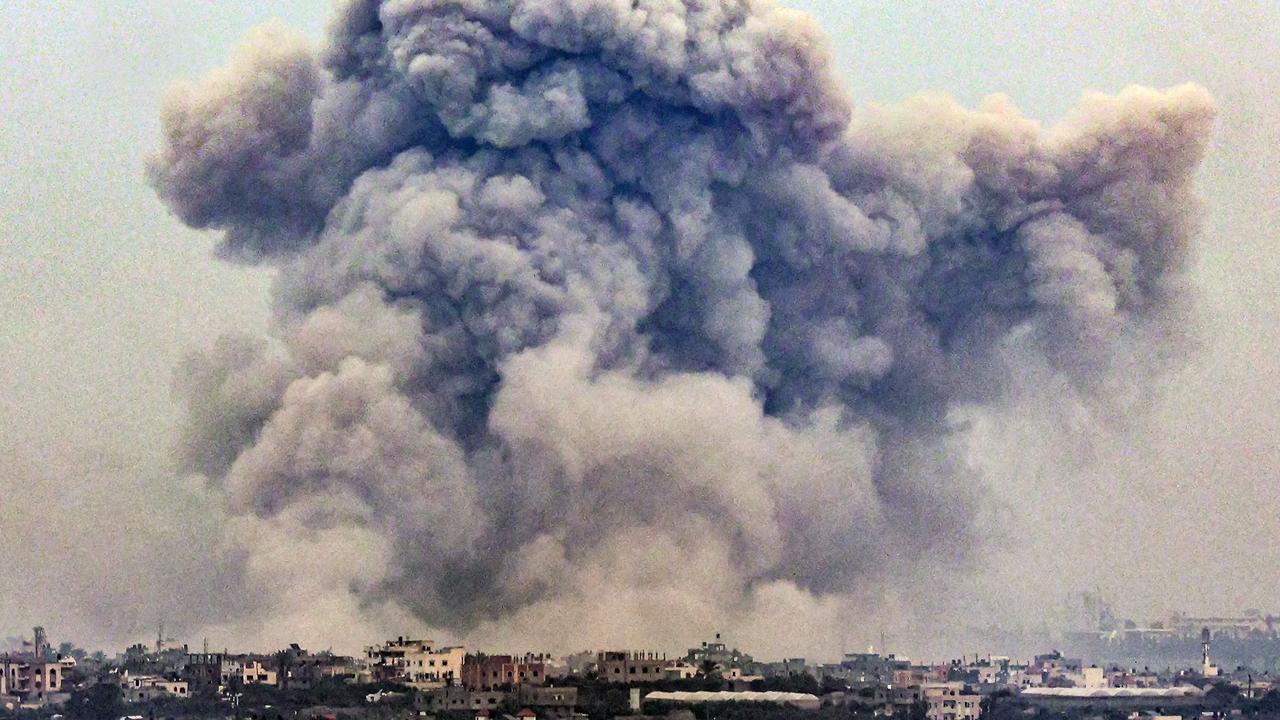
Hamas TV also said Israel had killed Aruri in Lebanon, and Lebanese media reported a total of seven people were killed in the attack by an Israeli drone.
The strike adds to widespread fears that the nearly three-month-old Israel-Hamas war could become a wider regional conflagration.
Hamas said the killing would not lead to its defeat, while Hezbollah vowed Aruri’s death would not go “unpunished”. Hezbollah called it “a serious assault on Lebanon... and a dangerous development in the course of the war.” Lebanese Prime Minister Najib Mikati condemned the killing and said it “aims to draw Lebanon” further into the Israel-Hamas war.
In a call with Israeli war cabinet member Benny Gantz after the strike, French President Emmanuel Macron urged Israel to “avoid any escalatory attitude, particularly in Lebanon”.
Hamas’s bloody attack on October 7 resulted in the deaths of around 1,140 people in Israel, most of them civilians, according to an AFP tally based on official Israeli figures.
Militants also took around 250 hostages back to Gaza -- which has been ruled by Hamas since 2007 -- of whom 129 remain in captivity, according to Israeli figures.
After the attack, the worst in its history, Israel began a relentless bombardment and ground offensive that has killed at least 22,185 people, mostly women and children, according to Gaza’s health ministry.
Red Crescent struck
On Tuesday, Israel’s army said soldiers in Gaza had killed “dozens of terrorists”, including some carrying explosives. It said they also raided a weapons storage compound in the southern city of Khan Yunis and discovered long-range rocket launchers and tunnels.
The territory’s Hamas-run health ministry said 70 people were killed and more than 100 wounded in the previous 24 hours during Israeli raids.
In Khan Yunis, the Palestine Red Crescent Society (PRCS) said Israel twice struck its headquarters, resulting in “five casualties and three injuries” among displaced people who had sought refuge there and at a nearby hospital.
“They told us to go to the south that is safe, but they are liars,” shouted Fathi al-Af, pointing to his daughter on a stretcher on the floor of Nasser Hospital after the Red Crescent strike. “The entire Gaza Strip is not safe.” The head of the World Health Organization (WHO) denounced the alleged strikes, saying they “severely damaged” a Red Crescent training centre within the Al-Amal hospital.
“Today’s bombardments are unconscionable. Gaza’s health system is already on its knees, with health and aid workers continuously stymied in their efforts to save lives due to the hostilities,” Tedros Adhanom Ghebreyesus said on X.
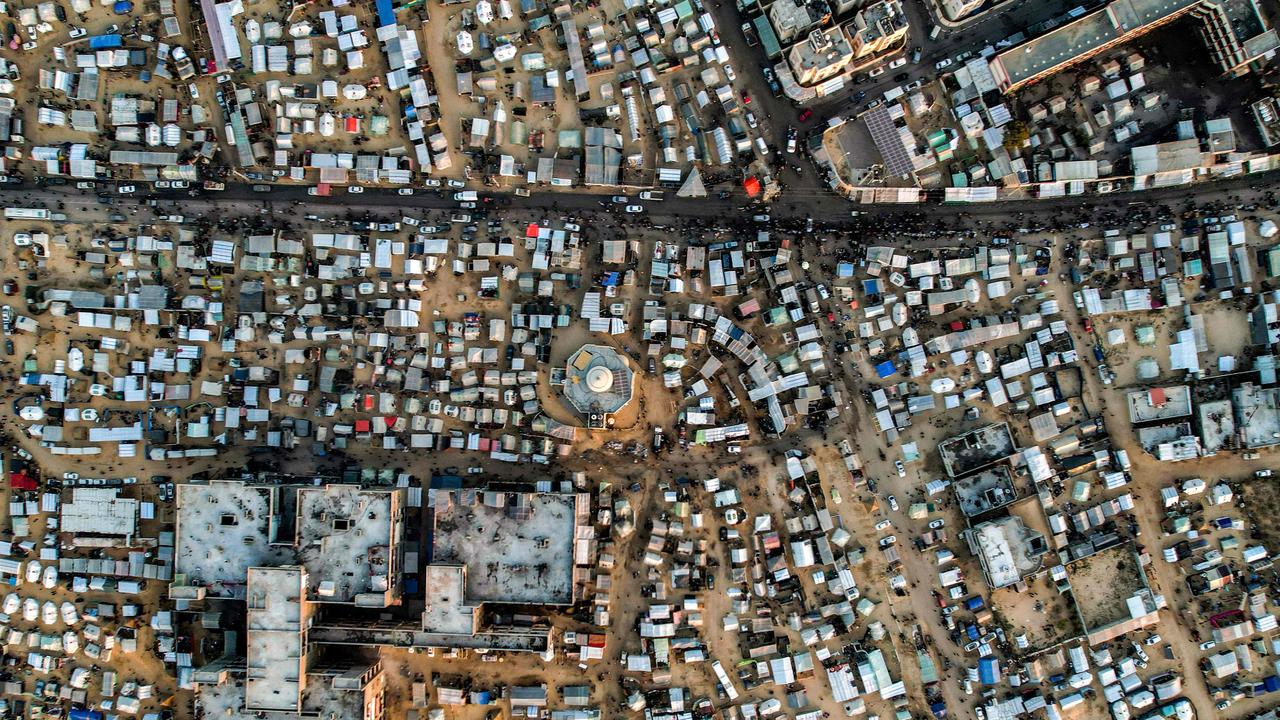
United Nations agencies have voiced alarm over Gaza’s spiralling humanitarian crisis, which has left 2.4 million people under siege, most of them displaced and crowded into shelters and tents during winter rains.
The WHO has warned of the risk of famine and disease, with only a minimal amount of aid entering.
On Tuesday, the UK said a British ship had delivered the first 87 tonnes of aid for Gaza -- including thousands of thermal blankets -- to Egypt from the Mediterranean island of Cyprus, which proposed the maritime corridor initiative.
“Hamas people are hiding in their houses and the tunnels, while we don’t find food or drink and are dying of cold. I have an infant, I can’t get him diapers or baby formula,” said Wojud Kamal al-Shinbary, who like many Gazans made her way to Rafah, in Gaza’s far south.
Accused mastermind
The Israeli army says 173 of its soldiers have been killed in Gaza fighting Hamas, which is listed as a terrorist organisation by the European Union and the United States.
In early December, after a week-long truce that saw Israeli hostages freed in exchange for Palestinian prisoners, Aruri said there would be no more releases without a permanent ceasefire.
“The price to pay for the release of Zionist prisoners will be the release of all our prisoners -- after a ceasefire,” he said.
Aruri, who lived in exile, was accused by Israel of masterminding numerous attacks. He was elected deputy to Hamas chief Ismail Haniyeh in 2017, before being officially named the group’s number two.
In October, the Israeli army demolished Aruri’s home in the occupied West Bank. After the death of his deputy, Haniyeh said that a movement “whose leaders fall as martyrs for the dignity of our people and our nation will never be defeated”.
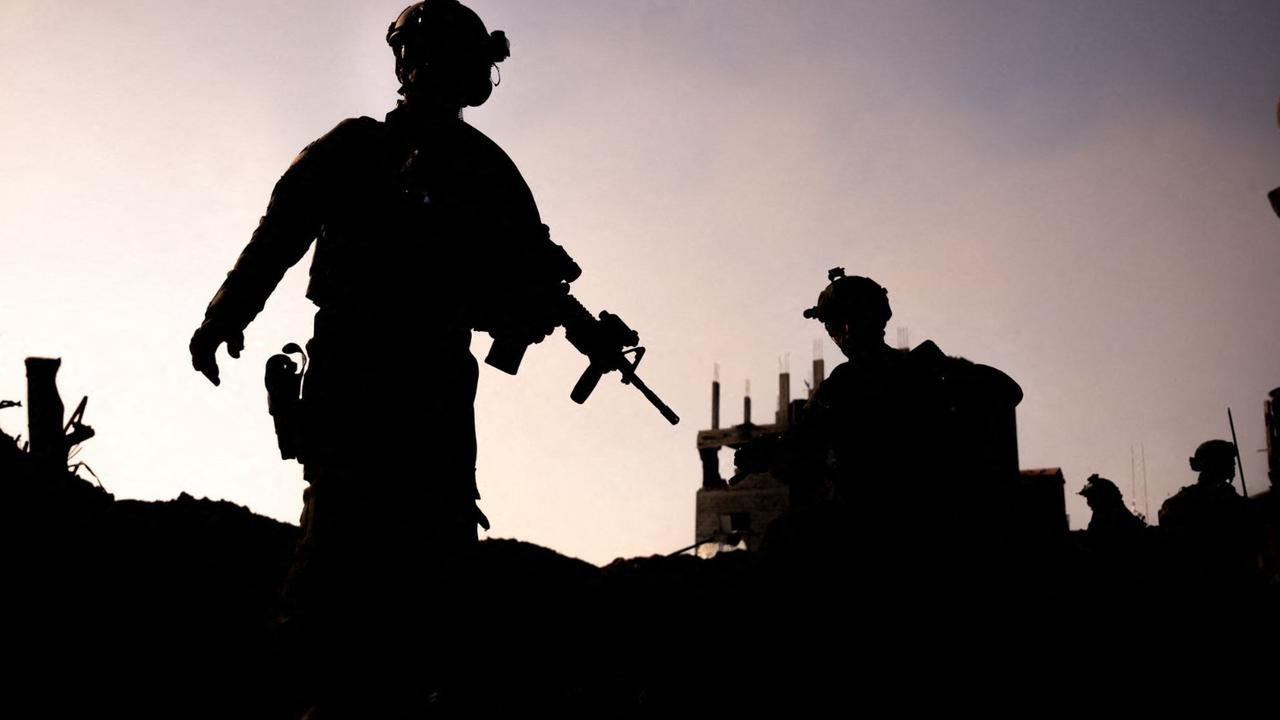
‘Risks and consequences’
In the occupied West Bank, violence since October 7 has surged to a level unseen in nearly two decades. At least 321 Palestinians have been killed by Israeli troops and settlers since the Gaza war began, according to the Ramallah-based Palestinian health ministry.
AFPTV images showed scores of people in the streets of Ramallah to protest Aruri’s killing, which Palestinian prime minister Mohammed Shtayyeh condemned.
Shtayyeh also warned about the “risks and consequences that could follow”, his office said.
The hostilities along the Israeli-Lebanese border have fanned fears of a wider conflict, as have Israel’s occasional strikes inside Syrian territory, where Hezbollah also operates.
A strike inside Syria last month that was blamed on Israel killed a senior commander of the foreign operations arm of Iran’s Islamic Revolutionary Guard Corps.
More Coverage
Yemen’s Iran-backed Huthi rebels, who claim to be operating in support of Hamas, have also launched attacks at Israel and against cargo ships in the Red Sea, where the US military has assembled a multinational task force to protect the vital shipping lane.
Turkey, whose President Recep Tayyip Erdogan has harshly criticised Netanyahu over the war, announced the detention of 34 people suspected of planning abductions and spying on behalf of Israel’s Mossad intelligence service.
Erdogan weeks ago warned of “serious consequences” should Israel attempt to target Hamas figures living or working in Turkey.

